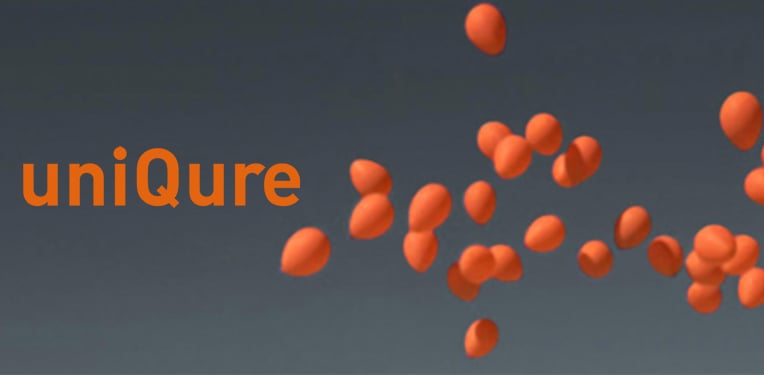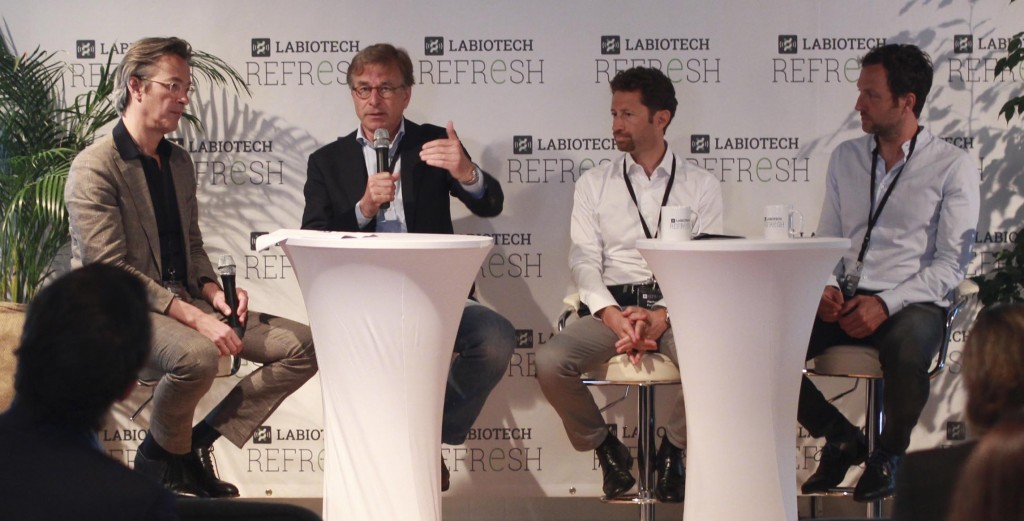Joern Aldag is one of the impressive Biotech leaders in Europe. Hearing him at our Refresh conference made me think of a new type of article we could publish: a detailed summary of the lessons learned from such a very rich career. Here’s the first of such a piece.
Aldag was just appointed CEO of the Vienna-based Oncology Biotech Hookipa. He is also board member of Boston-based Unum Therapeutics (an example of a next generation CAR-T biotech) and Chairman of Molecular Partners (one of the most successful Biotech in Zurich).
Previously, he was the CEO of German Evotec, bringing the company from 30 to 400 employees, before he then headed uniQure where he got the world’s first market approval for a Gene Therapy and also brought the company onto the NASDAQ.
How did you bring Evotec from 30 to 400 employees?
When I joined Evotec in 1997, it was mainly a technology provider and a CRO. I rapidly realized that valuations of companies are really driven by their own assets. So I pushed the company towards drug development.
We acquired Oxford-based Asymmetry for £316M, which had great expertise in chemistry, to add it to our experience in screening and running assays. The end results was an early-stage discovery company which had its own compounds in development and we in-licensed CNS compounds from Roche to develop them.
As a service company, how did you manage to have enough cash to invest and transition to drug development?
This is always a key issue with technology companies. And more than just cash, it also demands a really different mindset to shift from technology development to product development.
This translates into hiring different types of profiles while making the internal culture of the company evolve. Some choices were relatively brutal, but we succeeded in making the transition.
Did you have any model company at that time?
No, only a few companies worldwide have done such a transition successfully. I just had the feeling that it was the right thing to do.
Anyway, you should always try to build your very own company and it’s not very useful to emulate from someone else.
And then, why did you move to uniQure?
I’m not a scientist originally but I’m excited by bringing pioneer technologies to the market. And uniQure has such a promise.
I was fascinated by the possibilities of curing diseases with a one-time treatment. The main problem at that time was the scaling up and how the company had tackled it. So I accepted the challenge of bringing the first gene therapy to the market.

A market that did not know what gene therapy was about. How did you overcome that?
Yes, it was a tough path as we were at the forefront of innovation. The regulators had no benchmark to compare our program to and a lot of education had to be done.
Also, our clinical study only included 27 patients, which made it even more difficult to get evidence-baed approvals. It took us 3 years in total to overcome it.
What were your lessons from such a long path?
First, you shouldn’t easily take ‘no’ for an answer, even when it comes from the regulators. We pushed really hard and it paid out.
Second, bringing breakthrough technologies without being well financed can be tricky. At uniQure, we were not so well financed, we had only one-quarter of visibility and we always had to worry about money.

The ‘US approach’, as made by Boston-based VCs Third Rock, Atlas or Flagship, is different. They take the best science, the best entrepreneurs, invest a lot of money and then push it forward. Such a strategy allows to focus on science and has shown very successful results (think Bluebird bio, Moderna, Editas, among many others).
Why did you delist uniQure and then relist it later?
We just haven’t had the choice. The company at the time was still called Amsterdam Molecular Therapeutics – we had no market approval, no money, and the company was valued only 10 million euros.
So we decided to reboot the company: We created uniQure with the assets and raised private money. Once we got market approval, we decided to list again. We chose the NASDAQ as the US market was wide open and enthusiastic about new technologies such as gene therapy.

Which differences have you seen between the two continents in regards to financing?
First, the quality of Biotech analysts and investors is enormous in the US, but it’s way less sophisticated in Europe. Second, the majority of the funds are in the US and you have an enormous pool of money.
Third, the Biotech stocks are much more volatile (get acquired and sell more rapidly). This leads to a more dynamic stock market, which is also less stable and less long-term oriented than in Europe. And last but not least, you have way more serial Biotech entrepreneurs in the US.
What is often the underestimated aspect by Biotech leaders?
A lot of very good science failed because of a bad financial strategy. Assuming you have the right people, you have to be aggressive on executing the financial side in order to bring your science to the market (or at least to a partner).
Biotech is not only about the science. I believe it’s as much about funding as about science.”
What are the most significant changes that happened in the Biotech industry between 1997 and now?
The key aspect is that, back then, Biotech hadn’t delivered yet (meaning showed its potential). Now, you have a number of successful Biotech companies, such as Gilead, Celgene and Genentech. All of these have drugs on the market that are saving lot of peoples life (and generating solid revenues).
This explains the high valuations of companies such as Alnylam, Alexion, Galapagos or Actelion. The promise of Biotech is now real and you should see many of new Biotech products reach the market in the coming years.
It was really great talking to Joern and being able to summarize his extensive experience. I love how humble he was in regards to what he achieved so far. We definitely need more of these kind of Biotech leaders in Europe.
As I told you, this is the first article of such a series of “profiles”. I would love to hear from you – did you like it? How could it be improved? Who would you interview next? Please comment below or send me an email to philip-at-labiotech.eu
Feature Image Credit: Remix by Labiotech (Source: Joern Aldag)





